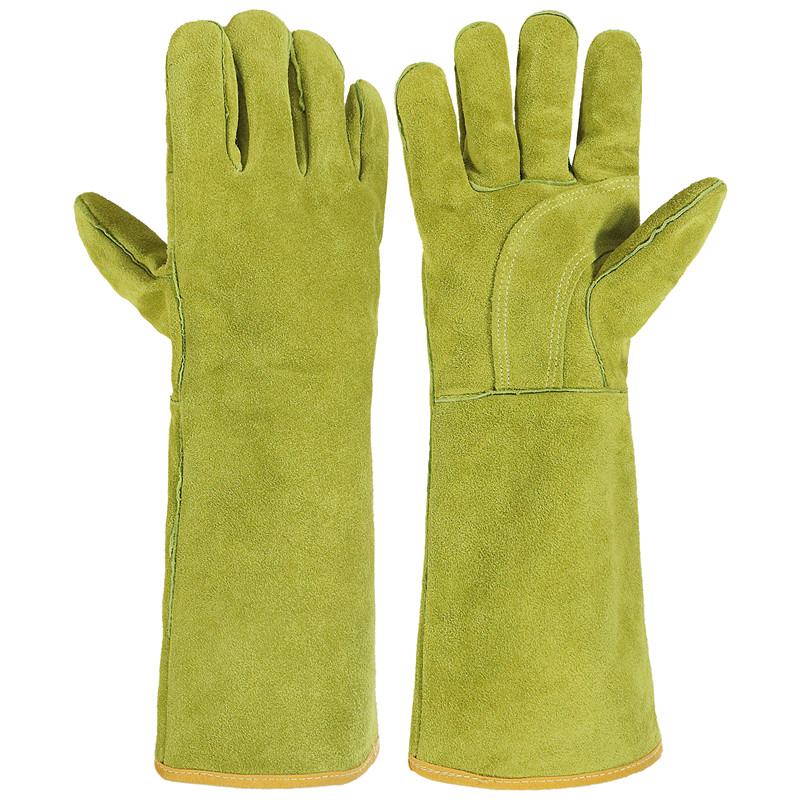Sustainable materials used in work glove production include bamboo fiber, recycled polyester, natural rubber, plant-based leathers, and organic cotton. These materials reduce environmental impact while maintaining durability and functionality.
Why Use Sustainable Materials in Work Gloves?
Sustainable materials offer a greener alternative to traditional options, reducing pollution, conserving resources, and supporting eco-friendly practices. Work gloves made with these materials not only protect workers but also the environment.
Key Sustainable Materials for Work Gloves
1. Bamboo Fiber
- What It Is: Bamboo is a fast-growing, renewable plant.
- Why It’s Used: Bamboo fiber is naturally antibacterial, moisture-wicking, and biodegradable.
- Applications: Lightweight gloves for general tasks or gardening.
- Environmental Benefit: Producing bamboo fiber consumes less water and reduces pesticide use compared to cotton.
2. Recycled Polyester
- What It Is: Made from recycled plastic bottles.
- Why It’s Used: Durable and reduces plastic waste.
- Applications: Heavy-duty gloves or gloves for wet conditions.
- Environmental Benefit: Keeps plastic out of landfills and reduces the need for virgin polyester.
| Metric | Virgin Polyester | Recycled Polyester |
|---|---|---|
| Energy Consumption | High | 33% Less |
| CO₂ Emissions | High | 20% Less |
3. Natural Rubber
- What It Is: Sourced from rubber trees.
- Why It’s Used: Elastic, durable, and biodegradable.
- Applications: Gloves requiring flexibility, such as industrial or medical gloves.
- Environmental Benefit: Supports sustainable forestry when responsibly sourced.
4. Plant-Based Leathers
- What It Is: Made from mushrooms or cactus fibers.
- Why It’s Used: Vegan alternative to traditional leather.
- Applications: Durable work gloves or stylish outdoor gloves.
- Environmental Benefit: Uses fewer resources like water and chemicals compared to animal leather.
5. Organic Cotton
- What It Is: Grown without synthetic pesticides or fertilizers.
- Why It’s Used: Soft, breathable, and eco-friendly.
- Applications: Lightweight gloves for general or dry tasks.
- Environmental Benefit: Protects soil health and reduces chemical runoff into water systems.
Benefits of Sustainable Materials
- Reduced Environmental Impact: Biodegradable and renewable options minimize pollution.
- Healthier Work Environments: Many natural materials are hypoallergenic, improving worker safety.
- Increased Market Appeal: Eco-friendly products attract environmentally conscious buyers.
Challenges in Using Sustainable Materials
- Performance: Ensuring durability and protection standards are met.
- Cost: Sustainable materials often cost more, impacting pricing strategies.
- Supply Chain: Consistency in sourcing high-quality sustainable materials can be challenging.
Conclusion
Sustainable materials like bamboo fiber, recycled polyester, and natural rubber offer durable and eco-friendly options for work glove production. These materials not only protect workers but also reduce environmental impact, making them a smart choice for manufacturers and consumers alike.









